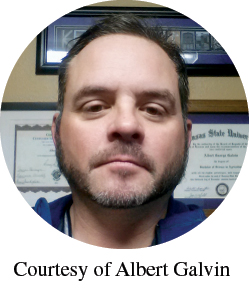Read at Work
Almost all jobs require some reading, and in many cases, reading is a key part of the job description. (If you want to be a textbook author, you won’t get far without reading — trust us!) In fact, reading is so important that “reading comprehension” counts among the core skills needed to perform work in many professions.4 In this section, we look at ways you can use reading skills on the job. As you work through the section, think about the profession (or professions) that interest you most. Do they involve a lot of reading? Or just a little? What kind of reading? How can you put the reading skills you’re learning in this class to good use in your career?
FOR DISCUSSION: If they’re currently working, ask students how they use reading in their jobs. Do they use it frequently? Rarely? Would they be able to make it through their shift without reading?
Gather, Analyze, and Apply Information
Reading is a core activity in many jobs because you frequently have to gather, analyze, and apply information to get work done, and for all of those tasks you need strong reading skills. For example, suppose a pharmacist needs to dispense a new drug, but she’s uncertain how it will interact with other medications a patient is taking. She has to read about the new medication, analyze whether it can be taken safely with the other medications, and then apply what she learned to this particular patient’s situation. In positions like this one (and many others), reading relevant information — and thinking critically about that information — is a crucial part of performing your duties effectively.
Stay Current
Employers want to hire and promote people who keep up with the latest knowledge in their field, and reading can help you do this. Early in your career, identify the best sources of current information in your field. As a psychologist, for example, you might consult a source like Psychological Bulletin. As a teacher, you might go online to NASA’s Web site to get a new lesson plan. Another way to learn the latest information is to join a professional association, such as the Society for Human Resource Management or the American Psychological Association. Many of these groups send out monthly or quarterly magazines containing articles about trends in the field. Finally, use reliable and reputable Web sites, blogs, and social media to stay up-to-date. For example, following various experts on Twitter can help you find out about articles, blog posts, and other reading materials you need to stay current and informed.

Expand Your Skill Set
You can also use reading to build new skills that are valuable in your career. For example, do you want to learn more about how to use wind turbine technology, design more effective interventions for at-risk youth, or manage social media campaigns for your organization? Do you want to become a whiz at Excel or learn how to create a model of an erupting volcano before teaching a science lesson to your sixth-grade class? Reading can help you get it done. Pick up a book, browse relevant Web sites, or seek out a journal article on your topic of choice.
voices of experience: employee
READING TO SUCCEED AT WORK

| NAME: | Al Galvin |
| PROFESSION: | Recreation Specialist II |
| SCHOOL: | Kansas State University |
| DEGREE: | Bachelor of Science in Agriculture |
| MAJOR: | Parks and Resource Management |
“Without reading, I wouldn’t have found the information I needed to do my job effectively.”
As a Recreation Specialist II, it’s my responsibility to manage the allocation and programming for 147 sports fields in Clark County. I spend about 80 percent of my time on the computer, so I do a lot of my reading online. Many times I’m talking on the phone, looking on my computer at field schedules and availability, and looking up information about the organization or person I’m speaking to. Reading about them helps me better qualify the person/organization in order to better help them. I research these organizations — which include sports leagues, teams, and concessionaires — online. I see what people say about them and follow up with their backgrounds a bit. I also end up reading all sorts of things for the different groups that want to use our facilities. In addition to reading e-mails, I have to research by-laws, regulations, or policies from different groups who want to use the fields. I’m reading all the time.
Recently we had a situation where some groups claimed to be nonprofits, but I wasn’t sure they really qualified. Nonprofits get priority when it comes to using the fields, and they pay reduced fees to do so. Figuring out which organizations were nonprofit turned out to be a massive project. We conducted an internal audit of our organizations and the required paperwork they give us. We researched every organization’s nonprofit status on the IRS Web site. Some of them had been revoked and we needed to know why. I ended up reading through hundreds of pages of IRS information about how this whole thing works. Without myself and a few others really reading about regulations and policies, we would have had numerous organizations who weren’t following our own policies. Without reading, I wouldn’t have found the information I needed to do my job effectively.
YOUR TURN: Do you currently have a job? If so, what kinds of reading are most useful for excelling in your job? If you’re not currently employed but want to pursue a particular career, what kinds of materials will you likely need to read in order to do your job well?